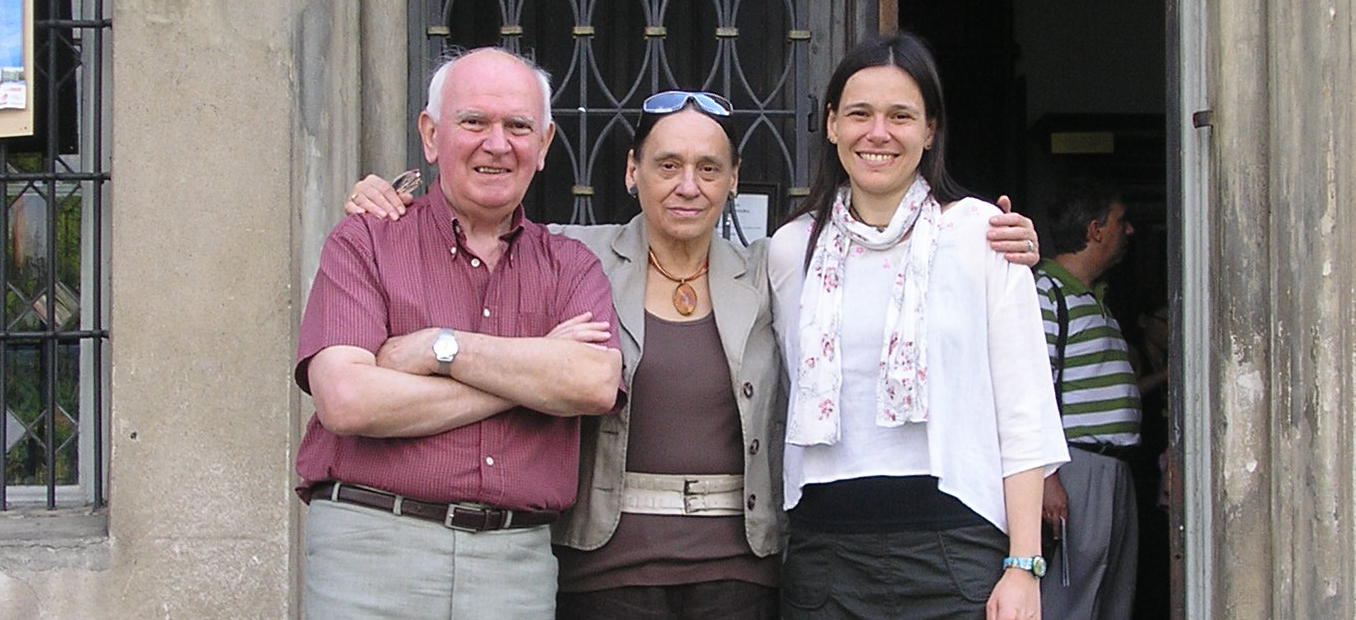08 Nov 2020

HEIDI DOUGLASS | h.douglass@unsw.edu.au
Dr Karolina Krysinska obtained her PhD in Psychology in 2001 and has since had a rich career history in research. She is a Research Fellow at the Centre for Mental Health, Melbourne School of Population and Global Health at The University of Melbourne and an Adjunct Senior Lecturer at the Centre for Primary Health Care and Equity at the University of New South Wales. Previously she worked on the Australian Dementia Network (ADNeT) Registry project at the Monash University. Karolina is also a Gestalt psychotherapist at the ConnectGround Clinic and Lygon Therapy in Melbourne.
She is also a CHeBA donor.
Karolina, whose parents are both medical doctors, is originally from the city of Poznań which sits on the Warta River in West Poland. It is the fifth largest and one of the oldest cities in Poland. In the 1960s and 1970s, Edward Stachura, a poet, writer, and songwriter from her homeland rose to prominence and it was his journey that initially motivated Karolina into suicide prevention and dementia research. Tragically, Edward Stachura took his own life at the age of forty-one.
Many years in mental health eventually led Karolina to the Black Dog Institute where she remained focused on suicide prevention. It was during this time that she had the opportunity to meet CHeBA Co-Director Professor Henry Brodaty and not long after took a role with him in the Dementia Centre for Research Collaboration – eventually leading to what she describes as a privilege of observing his clinical work.
“It was experiencing Henry’s interaction with his patients that encouraged me to work with people as a psychotherapist,” says Karolina. “He was so exceptionally kind to every individual.”
Karolina’s recall is that everyone wanted to work with Henry.
It was during the ensuing year and a half, while working on a scoping study for a national dementia registry in Australia to improve dementia clinical care at the Dementia Centre for Research Collaboration, that her father, Professor Zdzislaw Krysinski, declined significantly from Parkinson’s disease. Professor Krysinski’s challenging journey with the disease had developed into dementia as well as tremors.
A poignant memory for Karolina that helped her retain her strength was advice from Henry, that it is “comforting to have knowledge.” This advice proved to be Karolina’s push into dementia research.
“Once I started learning more about the disease, I realised how truly serious and tragic it is,” says Karolina.
“There are so many different types and so many different trajectories and studying the disease really opened my eyes to the significant burden and human tragedy behind dementia.”
In 2017 at age 83, Karolina’s father passed away.
“My mother, Romana Krysinska, was my father’s only and devoted carer,” says Karolina.
“Witnessing my father’s suffering and seeing how my mother dealt with it with so much love and devotion keeps me motivated to create change for people diagnosed with dementia – and their families.”
Dr Karolina Krysinska, Centre for Mental Health Research Fellow and CHeBA Donor
Following her father’s death, Karolina became enchanted by Scandinavian dementia registries and their approach to managing treatment and care of people diagnosed with Alzheimer’s disease and other dementias.
“Dementia is undeniably a global priority and in 2016 it was identified as a priority area for development of a clinical quality registry,” explains Karolina.
Now Karolina continues to collaborate with Henry and fellow Co-Director Professor Perminder Sachdev through CHeBA’s involvement with ADNeT. The primary objective of this registry is to monitor and enhance the quality of care and patient outcomes for people diagnosed with either dementia or Mild Cognitive Impairment.
“There is evidence that these dementia clinical quality registries facilitate better diagnosis, management and care of people with dementia, as well as caregiver support across the course of the illness,” says Karolina.
“They also have great potential to reduce the cost of dementia beyond improving standards of diagnosis and care,” she says.
Of the future, Karolina is optimistic.
“There is so much potential for people with dementia to have better care and treatment programs but this requires us moving beyond standard procedure and taking a new approach.”
Dr Karolina Krysinska, Centre for Mental Health Research Fellow and CHeBA Donor
Although this will take a significant shift in how people think about care and also significant change to organisational structure, Karolina can clearly see the possibilities and in honour of her father will continue to strive toward these outcomes.
In relation to her support of CHeBA, Karolina stresses the importance of research into prevention, earlier detection and quality management and care.
“My personal views align with CHeBA’s research projects and I am proud to be able to support advancements in dementia research,” she says.
“It is partly because of Henry’s dedication and knowledge and partly to honour my father that I give regularly to CHeBA."
Dr Karolina Krysinska, Centre for Mental Health Research Fellow and CHeBA Donor
To find out more about CHeBA’s research or to make a donation, please contact h.douglass@unsw.edu.au
